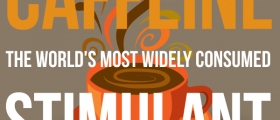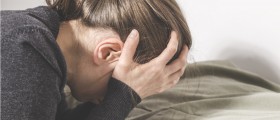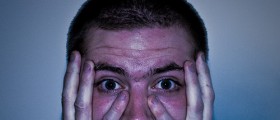Caffeine is a stimulant that our body does not need, however strange this might sound. Basically, caffeine affects the chemistry of our brain possibly leading to increased stress, anxiety, panic, depression, or even insomnia. Furthermore, it triggers the excessive activity of our adrenal glands, producing stress hormones.
It does not stop there, however. By stimulating the pancreas to produce more insulin, caffeine leads to the necessity of more stress hormones which will release the excess of energy and stress, balancing our blood sugar levels as well as fat and glucose reserves. All in all, caffeine is capable of triggering quite a mass in our bodies.

Caffeine and Human Beings
Some people have bodies, metabolisms, and immune systems which can allow them to consume coffee in large amounts, without any significant effects on their health. On the other hand, some people do not have these privileges and are seriously affected by the smallest concentrations of caffeine they consume. Usually, people who have problems with stress and anxiety find the solution to their issues through caffeine abstinence.
- We studied 14,413 university graduates of the ‘Seguimiento Universidad de Navarra’ (SUN) cohort, initially free of depression. We evaluated coffee consumption using a validated food-frequency questionnaire (FFQ).
- Incident depression cases were adjudicated only if the participant met two criteria simultaneously: (a) validated physician-diagnosed depression together with (b) new onset of habitual antidepressant use. Both criteria were needed; participants meeting only one of them were not classified as cases.
- Participants who drank at least four cups of coffee per day showed a significantly lower risk of depression than participants who drank less than one cup of coffee per day (HR: 0.37 (95% CI 0.15–0.95)). However, overall, we did not observe an inverse linear dose–response association between coffee consumption and the incidence of depression (p for trend = 0.22).
- No significant interaction was found between total coffee consumption and sex, age, or smoking status in their association with incident depression (p > 0.05 for all of them).
- In this study, we found that participants who consumed at least four cups of coffee per day showed a lower risk of depression than participants who drank less than one cup of coffee per day. Nevertheless, we found no significant dose–response relationship between coffee consumption and the risk of depression.
The Impact of Caffeine
Caffeine, in smaller amounts, can have antidepressant qualities, helping people feel better, and bettering their mood. However, if one goes overboard with caffeine, he/she is bound to achieve the opposite effect, becoming depressed. This happens due to the fact that caffeine depletes the body of vitamin B6, which is crucial for the release of serotonin, our “feel good” hormone.
Secondly, whenever we are stressed, our body produces adrenaline in order to grant us the ability to escape the problems we are facing or to fight them. While in this state, caffeine consumption should be the last thing to opt for, since this substance only increases adrenaline production, increasing anxiety levels at the same time, making matters worse. So, avoiding caffeine can decrease your chances of suffering from panic attacks, palpitations, and many other anxiety-related states.
All in all, caffeine can be found in tea, coffee, energy beverages, chocolate, cola, and certain over-the-counter medications. This being said, decrease your intake of these medications, foods, and beverages, or opt for decaffeinated variants of these products.
Caffeine, in the long run, can lead to irritability, insomnia, anxiety, migraines, osteoporosis, panic attacks, gastritis, tinnitus, anemia, high blood pressure, irritable bowel syndrome, and many other health problems. Take this substance seriously and, if you enjoy consuming it, do so in moderation, without causing your body any harm.

















Your thoughts on this
Loading...